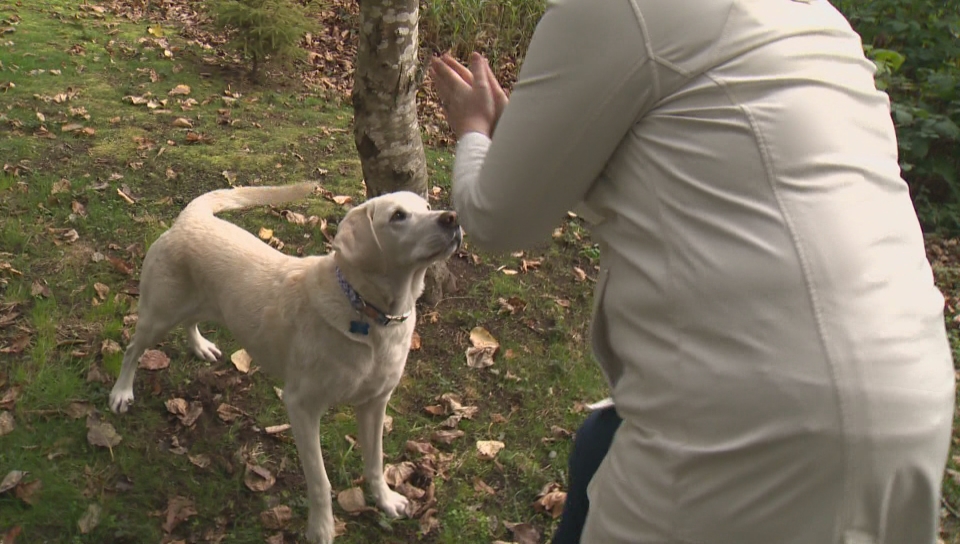It’s been two weeks since 58 people were killed in the Las Vegas shooting, an incident that’s been called the deadliest shooting in modern U.S. history.

But victims and their loved ones had some respite this week in the form of Caber, a yellow lab and B.C. trauma dog who flew down to Las Vegas and visited people in a family assistance centre, and in hospitals.
Coverage of trauma dogs on Globalnews.ca:
Caber and his handler Kim Gramlich were invited to the city by the Courthouse Dogs Foundation as part of a team of eight.
He helps victims by allowing them to pet and play with him.

Get weekly health news
While in Las Vegas, he spent time at a centre where family members gathered to obtain information about the shooting, and where they helped to identify people who might have been killed.
Caber also went to health care facilities where people were all too happy to see him.
READ MORE: Vancouver police enlist the help of their first trauma dog
“We came around the corner, and immediately everyone’s faces lit up with joy at seeing Caber,” Gramlich told Global News.
“And then they were really excited for us to be introduced to their loved ones in their hospital room, and we did that.”
Caber has plenty of experience helping people who have been through traumatic events.
Seven years ago, his calm demeanour helped him to become Canada’s first trauma dog, working with victims’ services at the Delta Police Department (DPD).
In Fort McMurray, he supported people who lost their homes in the 2016 wildfire.
He has also helped witnesses through difficult court testimony.
READ MORE: Meet West the trauma dog, East Kootenay RCMP’s latest recruit
“I had other responders comment to me on their observations with Caber with victims, and what they were saying was things like, the person wouldn’t talk about how they were feeling until they had a few minutes with Caber,” Gramlich said.
“Caber helped to draw out their emotions.”
At nine years old, Caber has been doing this work for a long time, and he was back to his regular job when he returned to B.C.
Gramlich said he’s likely to keep helping victims for some time.
“As long as the dog’s health remains good, and the dog wants to continue working, they probably will continue to work, so we have a few years left I think with Caber,” she said.













Comments